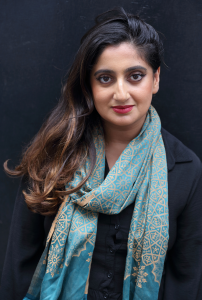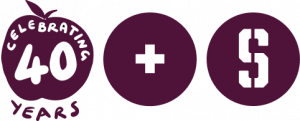The world of commissioning can sometimes be a minefield, and it can be difficult to know where to start.
I’ve been practising as a poet and workshop for over 10 years now, and alongside this work, I have also been commissioned to write for a variety of different projects. Each with its own trials, tribulations, and triumphs! This is by no means an exhaustive list, but a series of things that have stood out in my memory of my commission writing experience. I hope in some way in works out to be helpful.
THE COMMISSION
A commissioned piece is when you have been offered or applied to an organisation to write a piece that communicates the message of that organisation. The work usually takes form as a one-off performance, or a piece for social media or a website. For example, a commissioned piece can range from writing for a blog, exhibition, podcast, or a performance at a conference or festival. They usually pay quite well, some give you residency like opportunities, and time to carry out research with access to materials, space and experts.
FINDING A COMMISSION
The world of commissioning can sometimes be a minefield, and it can be difficult to know where to start. It is easy to feel others are just lucky enough to have opportunities thrown their way, and somehow all the commissions are not reaching you. But I have found that commissioned work is something you have to look for. And I belong to several mailing lists, including the Apples and Snakes basket, where opportunities to apply for such roles are listed.
I also look through the Arts Council England jobs list to see if anything that interests me is on offer. Twitter is also a useful tool, and I follow a few people who post opportunities that will lead to a writing commission. Very rarely have I been lucky enough to have been contacted directly and offered a commission, or another poet has suggested me for a project.
CHOOSING A COMMISSION
It is one thing writing when you are inspired, or what tickles your fancy, and actually writing to commission. This is why for me I always try to choose topics that a) I know a little thing or two about, b) it interests me, even if it is not, it’s something I have not explored before. c) be clear on what it is that I want to communicate in the piece, and check that this aligns with what the commissioning organisation want from the work.
KNOWING THE OUTCOMES OF THE COMMISSION
It is important to really read through the project information, and pick the brains of the commissioner. And believe me, it is possible to get it very wrong! In the past, I have embarrassingly gotten the brief very wrong. I ended up writing a rant about something completely not what the commissioning team wanted (sometimes, we as writers have something niggling away at us, and we cannot help but write about it).
Commissions don’t work like this. I am used to writing from my own free will and it is possible to forget that commissions can be quiet restrictive. That is where you need to get imaginative. How can you bring your voice and interests in to overlap on what the brief outline is. It is really important to get a clear idea on what thoughts/ feelings the organization wants and similarly what the readers/ audience to walk away with.
THE SMALL PRINT
When taking on a commission, make sure you have a clear timeframe and outline of how much this project will take to deliver. Commissions offer bigger fees than performance alone, which can be very attractive. However, I have worked on a project where the commissioning team kept adding extra meetings and site visits to the timeframe of the project. This meant that the initial sum I was offered was not a realistic amount for how much work was required from me as a poet on the project.
Once I started to add the extra meetings, and travel/ accommodation costs, the commission was not as well paid as I had initially budgeted. It is really important to have a clear breakdown of what the commission is worth, how much for the research and written piece, if there is a performance fee, and how many meetings or workshops you may be required to deliver. Have this in writing via a contract before you commit to doing the work.
ARTISTIC LICENSE & ETHICS
Know from the get-go, who owns the publishing rights to the end piece. Does it belong to you to perform again, or does the final piece belong solely to the organisation?
Know also what you as a writer want to gain from the commission. Does this topic tie in with your work? Is the final piece something you can use in a future collection or submit to a competition? Does the commission give you access to resources that you would otherwise not have had access to? Are you able to work with other exciting artists, and push your artistic practice in a way that you have not been able to in the past? Are you able to sell merchandise at the final event? Are you happy to be affiliated with this organisation and do their ethics line up with your sense of fairness and justice? These are a lot of questions to ask youself, but they are very imporant questions to ask. Take time thinking these through and getting that information upfront.
And finally good luck and have fun with any commissions you may have lined up in the future. Remember this can be a fun space where you can do something different to your usual work!
About Shagufta K Iqbal

Founder of The YoniVerse Poetry Collective and Kiota Bristol, Shagufta K Iqbal longlisted for the Jerwood Compton poetry fellowship, is an award-winning writer, filmmaker, workshop facilitator and Tedx Speaker.
Described by gal-dem as a poet whose work ‘leaves you validated but aching – her narratives are important, heart-wrenching and relatable.’ Her poetry collection ‘Jam Is For Girls, Girls Get Jam’ (one of Burning Eye Books bestselling collections) has been recommended by Nikesh Shukla as ‘a social political masterclass.’
Her poetry film ‘Borders’ has won several awards, and has been screened across international film festivals, including London Short Film Festival, Glasgow Short Film Festival, Athena Film Festival.
She sits on the board for Cape Farewell (An Art Response to Climate Injustice), and is currently writing her second poetry collection and a debut novel.”
Connect with Shagufta
Website: ko-fi.com/shaguftakiqbal | www.shaguftakiqbal.com
Producer ‘Borders‘
Photo credit: Colin Potsig
This blog is part of Behind The Words.
